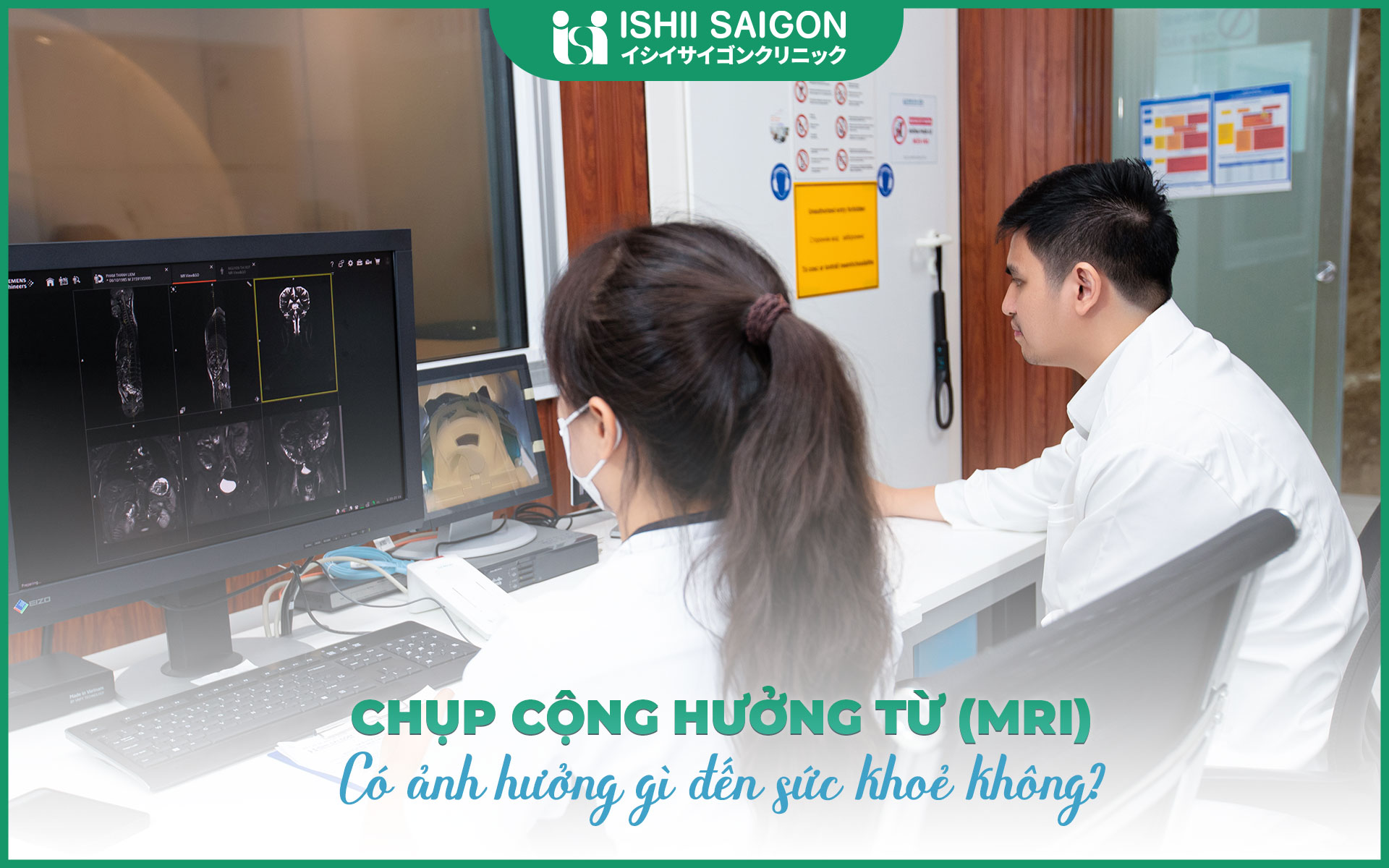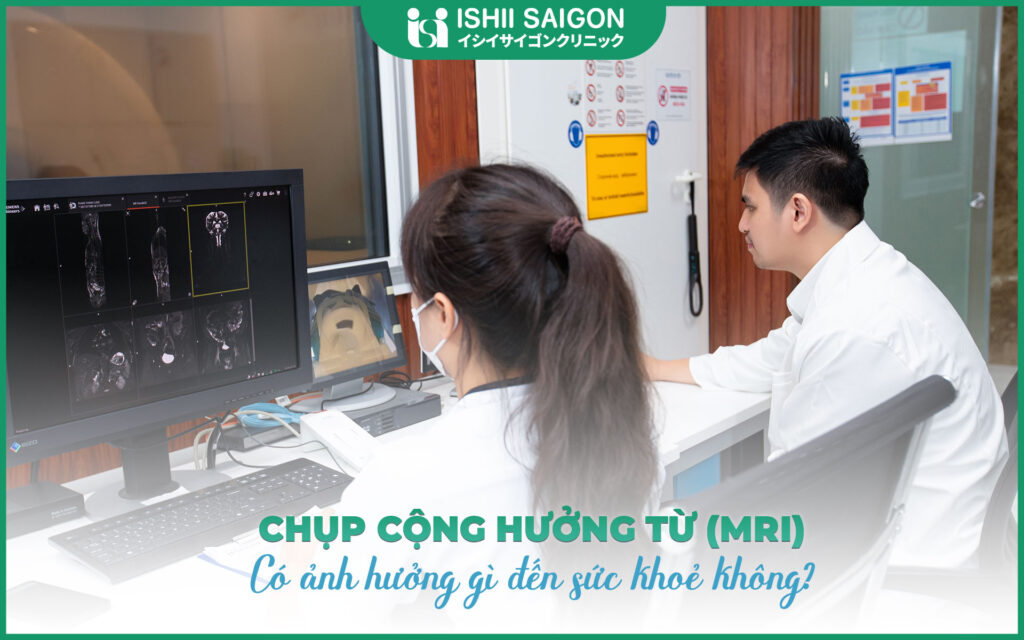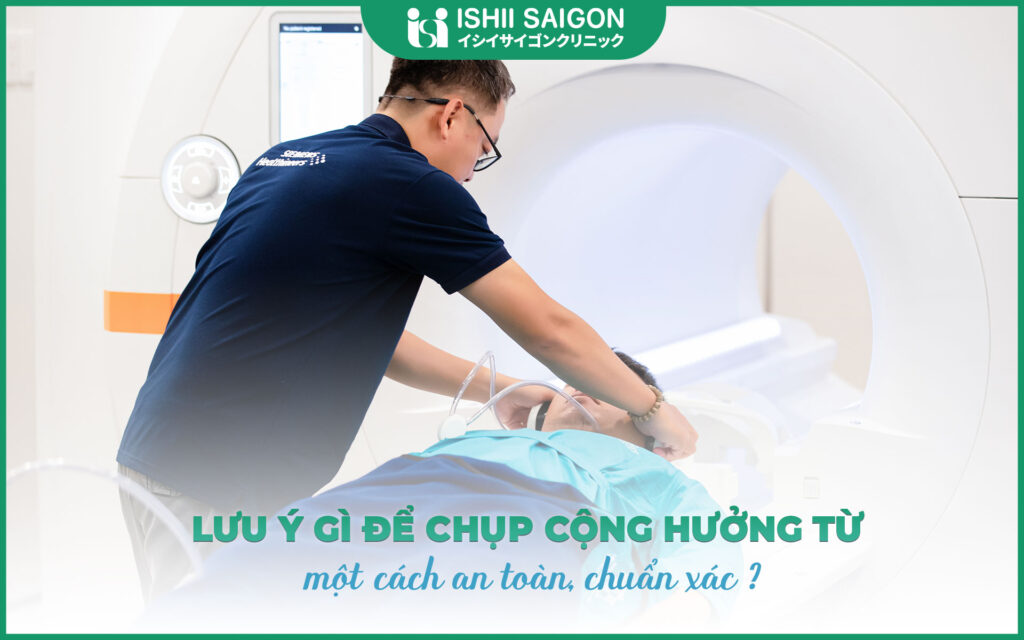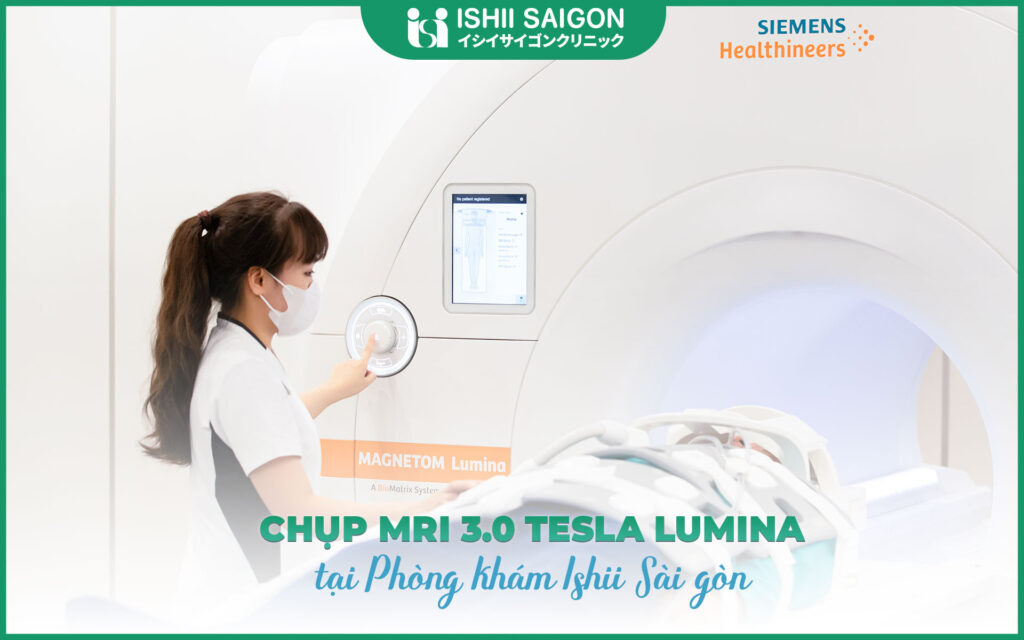
Magnetic Resonance Imaging (MRI) is an advanced imaging diagnostic technique that uses strong magnetic fields and radio waves to create detailed images of organs, tissues, and structures inside the body. Compared to other imaging diagnostic methods such as X-rays or CT scans, MRI offers many superior advantages, helping doctors diagnose a wide range of conditions more accurately, especially neurological, musculoskeletal, and cardiovascular disorders.
However, alongside its benefits, many people still have concerns about the potential health impacts of undergoing an MRI scan. This article will provide detailed information about the principles of operation, health effects, and considerations when undergoing MRI scans, so that you can feel reassured when undergoing this procedure.
Magnetic resonance imaging (MRI) operates on which principle?
Unlike X-rays that use X-rays to create images, MRI uses magnetic fields and radio waves to capture images of the body. When you enter the MRI machine, your body is surrounded by a strong magnetic field. This field stimulates hydrogen nuclei in your body to emit signals. Radio waves are then used to gather and process these signals, creating detailed images of tissues and structures inside the body.

Does magnetic resonance imaging (MRI) have any effects?
According to current studies, MRI is evaluated as a safe imaging diagnostic technique with few side effects.
- No X-ray radiation: MRI does not use X-rays, so it does not pose a risk of radiation exposure like X-rays or CT scans. Therefore, MRI is safe for both pregnant women and children.
- Few side effects: Most people do not experience any side effects after an MRI scan. In rare cases, some may experience mild side effects such as headache, dizziness, or nausea, but these symptoms typically resolve on their own after a short period.
However, it should be noted that MRI may not be safe for certain cases including:
- People with metal implants in their body: Metal implants can be displaced or heated by the magnetic field during an MRI scan, posing a risk to the patient.
- People with pacemakers: The strong magnetic field can affect the function of pacemakers.
People with certain conditions such as: claustrophobia (fear of enclosed spaces), psychiatric disorders...

What precautions should be taken for a safe and accurate MRI scan?
To ensure safety and obtain the best MRI scan results, consider the following:
- Notify your doctor about your health condition, including any illnesses you have, medications you are taking, medication allergies (if any), and any metal implants in your body.
- Remove all metal jewelry: Metal jewelry can affect image quality and pose risks to the patient due to the magnetic field.
- Bring along X-ray films, CT scans, or other diagnostic imaging results (if available): This will provide additional information for the doctor to make a more accurate diagnosis.
- Notify your doctor if you are pregnant or suspect you may be pregnant.
- Follow the instructions of the healthcare staff: During the scan, it's important to lie still to ensure clear images.
Magnetic Resonance Imaging (MRI) using the 3.0 Tesla MRI machine at Japan Medical Clinic - Ishii Saigon
Japan Medical Clinic - Ishii Saigon is proud to be one of the leading reputable healthcare facilities in Ho Chi Minh City, pioneering the application of state-of-the-art diagnostic imaging technologies. Among these, our standout service includes Magnetic Resonance Imaging (MRI) using the 3.0 Tesla MRI machine – an advanced technology that provides detailed, sharp images, aiding doctors in accurately diagnosing complex conditions, particularly neurological, musculoskeletal, and cardiovascular disorders.
Outstanding advantages of the 3.0 Tesla MRI service at Ishii Saigon:
- State-of-the-art equipment: Utilizing the advanced 3.0 Tesla MRI machine from Siemens (Germany), delivering high-quality images with superior resolution, enabling precise detection of even the smallest abnormalities.
- Experienced specialists: Our team of doctors and medical technicians are well-trained, highly skilled, and have extensive practical experience, always dedicated to serving patients with care.
- Professional service: The MRI scanning process is quick, safe, and designed to make patients feel comfortable.
- Modern healthcare environment: The facility is equipped with clean, convenient, sterile infrastructure, ensuring patient safety and hygiene.

Ishii Saigon commits to:
- Providing high-quality, reputable, and safe 3.0 Tesla MRI services.
- Delivering fast and accurate diagnostic results.
- Ensuring the security of patients' personal information.
- Reasonable and competitive costs.
Conclusion
MRI is a safe and effective imaging diagnostic technique that offers many benefits for diagnosis and treatment. However, it's important to note some contraindications and preparation steps to ensure safety and achieve the best results.
If you have any concerns about the effects of MRI, please consult with your doctor for specific advice.






